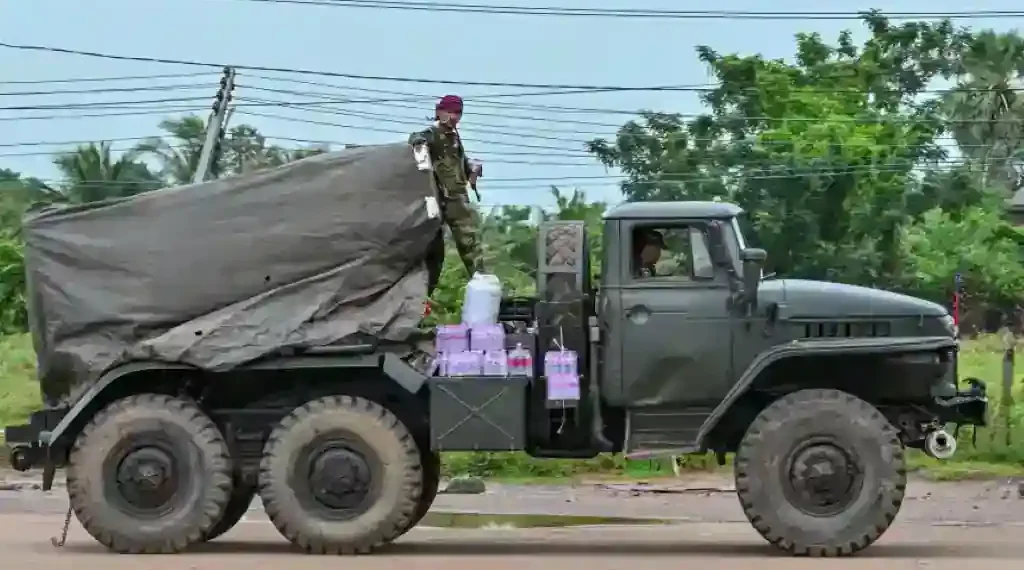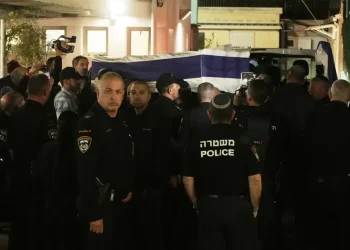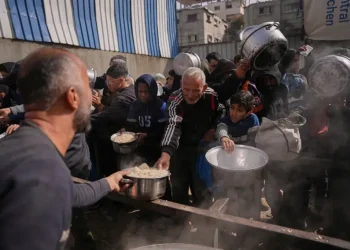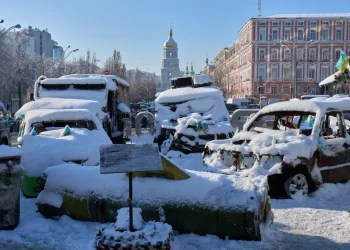Thailand and Cambodia Begin Peace Talks After Border Violence Escalates
July 28, 2025, 14:00 (U.S. Eastern Time)
Tensions between Thailand and Cambodia have reached a boiling point, with deadly border clashes prompting urgent diplomatic intervention. As casualties and displacement mount, officials from both countries are meeting in Kuala Lumpur in hopes of securing a ceasefire and avoiding further regional instability.
Emergency Talks Begin After Days of Fighting
Officials from Thailand and Cambodia arrived in Malaysia on Monday for emergency negotiations aimed at ending days of intense border fighting. The meeting, scheduled for 3 p.m. local time at the Prime Minister’s Office in Kuala Lumpur, follows a spike in violence that has left at least 35 people dead, over 200 injured, and more than 200,000 displaced.
The deadly conflict erupted last Thursday along the long-disputed border between the two Southeast Asian neighbors, leading to mutual accusations of aggression. The talks are being co-facilitated by the United States, with support from China and the United Nations, according to multiple government sources.
A Legacy of Disputed Territory
The border dispute, particularly near the ancient Preah Vihear temple, is rooted in decades of disagreement over maps and sovereignty. Clashes have erupted periodically since the early 2000s, but the latest violence is among the most intense in recent memory.
Cambodian officials accuse the Thai military of launching strikes using drones, rockets, and cluster munitions early Monday, with some hitting areas near Preah Vihear—a UNESCO World Heritage site. Cambodian Minister of Culture Phoeurng Sackona publicly appealed to the international community, including UNESCO and the UN, to help protect the cultural site from further harm.
Casualties Mount on Both Sides
According to a CNN tally based on official statements, Thailand has reported 22 deaths—14 of them civilians—since the start of hostilities. The Thai military also said more than 139,000 residents from seven provinces have been relocated to government shelters.
In Cambodia, authorities said that at least 13 people were killed and 50 injured, with 80,000 displaced in the northern province of Oddar Meanchey alone. Most casualties resulted from artillery shelling near residential areas and historical landmarks.
U.S. and China Push for Ceasefire
U.S. Secretary of State Marco Rubio confirmed Sunday that American diplomats would be present at the talks. “Cambodia and Thailand are scheduled to begin high-level talks in Malaysia shortly in hopes of achieving an immediate ceasefire,” he said. Rubio also noted that President Donald Trump had personally spoken with leaders from both countries.
Trump posted on Truth Social that he urged both nations to stop the violence and warned that the U.S. would suspend trade negotiations until hostilities end. “They are also looking to get back to the ‘Trading Table’ with the United States, which we think is inappropriate until the fighting STOPS,” he wrote.
Earlier in July, the Trump administration threatened 36% tariffs on most Cambodian and Thai exports starting August 1 if violence continued. Both countries had recently been negotiating favorable trade terms with Washington.
Mutual Accusations and Uncertain Ground
Despite the talks, distrust remains high. Thailand’s Ministry of Foreign Affairs stated on Sunday that a ceasefire was impossible while Cambodia continued to violate “basic principles of human rights and humanitarian law.” The Thai government has emphasized it will not negotiate over the maps used in the ceasefire process, insisting it will defend “every square inch” of its territory.
In response, Cambodia’s Ministry of Defense accused Thailand of “deliberate and premeditated acts of aggression,” even as Prime Minister Hun Manet confirmed his attendance at the peace talks.
Historical Ties Under Strain
Personal relationships between political leaders have also influenced current tensions. Previously close ties between former Cambodian Prime Minister Hun Sen and ex-Thai PM Thaksin Shinawatra have deteriorated. A leaked phone call between Thaksin’s daughter, current Thai Prime Minister Paetongtarn Shinawatra, and Hun Sen, in which she criticized the Thai military, sparked political backlash and an ethics investigation that led to her suspension.
Hun Sen has publicly criticized Thaksin, accusing him of provoking war. In turn, Thaksin accused Cambodia of escalating violence on the Thai side of the border.
Global Stakeholders Monitor the Situation
The United Nations and various international organizations have called for an immediate end to the conflict. UNESCO expressed concern over damage to heritage sites, and humanitarian agencies have begun mobilizing aid to support the displaced.
China has remained diplomatically neutral but sent observers to the Kuala Lumpur meeting. Regional analysts suggest Beijing is keen to prevent instability near its Belt and Road infrastructure corridors in Southeast Asia.
Hopes for a Breakthrough
Despite deep-rooted tensions, international observers are cautiously optimistic that the Kuala Lumpur talks could produce a short-term ceasefire or at least create a pathway for more formal peace negotiations.
Acting Thai Prime Minister Phumtham Wechayachai stated the talks are “intended to listen to all proposals that could contribute to restoring peace,” while reiterating that Thailand would defend its sovereignty.
The outcome of Monday’s meeting could have far-reaching implications not just for Cambodia and Thailand, but for regional security and trade dynamics across Southeast Asia.
This article was rewritten by JournosNews.com based on verified reporting from trusted sources. The content has been independently reviewed, fact-checked, and edited for accuracy, neutrality, tone, and global readability in accordance with Google News and AdSense standards.
All opinions, quotes, or statements from contributors, experts, or sourced organizations do not necessarily reflect the views of JournosNews.com. JournosNews.com maintains full editorial independence from any external funders, sponsors, or organizations.
Stay informed with JournosNews.com — your trusted source for verified global reporting and in-depth analysis. Follow us on Google News, BlueSky, and X for real-time updates.













